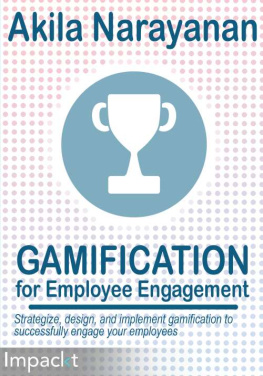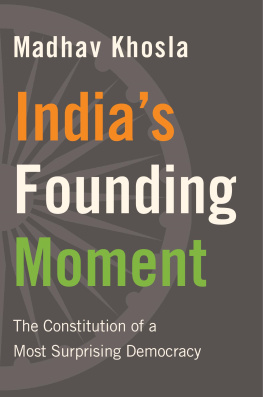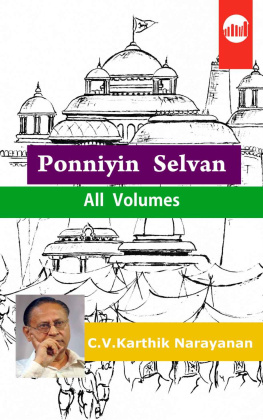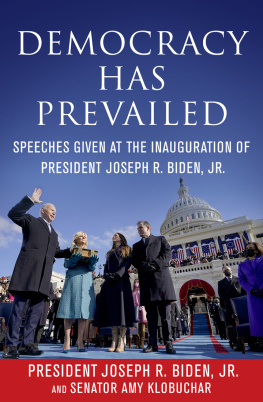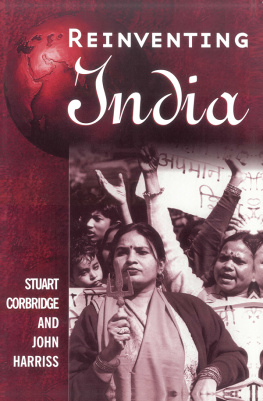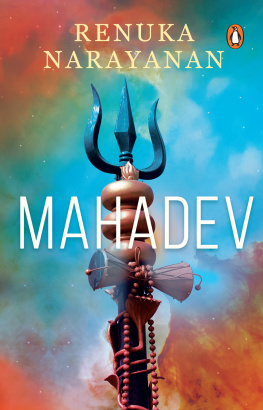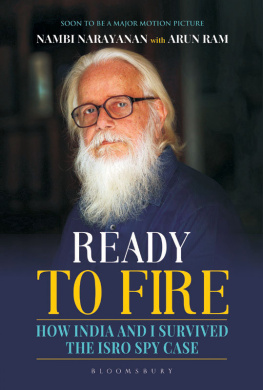The pieces included in this book span forty-seven years, from an early article published in the Economic & Political Weekly in 1954 (Freedom in Modern Society) to the presidential speech to the nation on the eve of Republic Day, 2000 (Turning the Searchlight Within). Also included are two articles, The British Contribution to Indian Democracy and The Greening of Development: Problems and Prospects, which are previously unpublished. The data and information contained in the speeches and articles have not been updated, since they were written in a specific context. The date of each piece has been mentioned in a footnote.
The selection for the pieces this book contains were made by Shri K.R. Narayanan in 2001, while he was still at Rashtrapati Bhavan. The title was also chosen by him. The publishers are grateful for the assistance and cooperation extended by Shri K.R. Narayanans heirs Chitra Narayanan and Amrita Narayanan towards the publication of the book, and would also like to thank Uma Iyengar for her help in going over the manuscript.
Foreword
The old Indian story about three blind men describingvery dissimilarlywhat they respectively thought an elephant looked like applies well to K.R. Narayanan.
He can be seen in many different waysall of them accurate. Narayanan was an outstanding scholar and intellectual, and in university circles, his academic excellence can indeed be the first description that would spring to mind. I met him first at the Delhi University campus, and many times afterwards in one campus or another (he also served, later on, as the Vice Chancellor of the newly emerging Jawaharlal Nehru University). I have always been impressed by Narayanans immense knowledge and scholarship as well as by his sharp and reasoned analyses.
But this was only one of Narayanans many identities. Narayanan worked as a journalist for the Hindu before going to the London School of Economics as a student, but also after he came back from there. His commentaries were politically informed and often challenging. Later he would go into politics, and serve as a visionary statesman who was repeatedly elected to the Indian Parliament (the Lok Sabha) in 1984, in 1989 and in 1991, and who gave many well-remembered speeches. He also guided Indian public policies as a senior cabinet minister, in charge, at different times, of planning, of external affairs, and of science and technology.
In addition, Narayanan was an outstandingly successful foreign servant, looking after Indias relations with key countries in the world. He served in New Delhi, guiding Indias external affairs from the home base, but also when he served for India in Burma, Vietnam, Thailand, Japan, Australia, Britain and Turkey, going on to make major contributions to Indias foreign policy as Ambassadors to the United States and China. Indias approach to the world was strongly influenced by Narayanans insightful analysis.
If all this, while very impressive, should appear to be relatively slight in comparison with the fact that Narayanan was also the President of India (no less), that could be an understandable assessment. And yet Narayanan himself would have attached importance not only to the extraordinary recognition that he received in being elected to head the entire country, but also to the professional work to which he was committed throughout his life. In addition to the various positions of responsibility he held in his pre-presidential lifefrom the academia to government serviceNarayanan was staunchly engaged in pursuing and enhancing public reasoning, making big contributions in clarifying the demands of democracy, freedom and development. Narayanans writings on the reach of Nehrus vision, on Indias relations with America, on Indias commitment to non-alignment, on our complex relations with China, and on a hundred other subjects, have illuminated our understanding of what he calls India and the world.
Narayanan never made much of the fact that he came from an exceptionally disadvantaged background. It is not only that his family was Dalit (formerly known as untouchable), but also that it was economically very poor. As a child, he had to walk a great distance each day to go to school, and had none of the facilities and support that help the development of the talents of an overwhelmingly large part of the Indian intelligentsia. While pursuing higher education, when Narayanan was recognized as a top student at Travancore University (and later at the London School of Economics), he was joining the Indian elite, but his understanding of the world would never ignore the perspectives of the poor and the disadvantaged, which he knew so well.
It is difficult to think of another human being who has achieved so much in so many different fields as Narayanan did, despite the hardship through which he had to emerge. Since I was privileged to know Narayanan over many decades, I am able to add that our astonishment cannot but be further enhanced by our appreciation of his natural modesty and friendliness, despite his extraordinary accomplishments. There have been very few people like this marvellous human being.
This Volume
The wonderful collection of essays by Narayanan that this book presents gives us a good view of the power of Narayanans ideas and analyses. The first set of essays here, in the section called India and the World, investigates the country from many different perspectives, taking note particularly of different global views. Those outward-oriented examinations are supplemented in the second part (The State of the Nation) of this magnificent collection of articles by Narayanans firm and humane scrutiny of the contemporary conditions of the Indian nation, with its achievements as well as its serious problemsinequality, violence, religious conflicts, political contradictions, and the persistent difficulties of educational inadequacy at different levels.
In the third section (Nationalism, Democracy, Government), we get a number of far-reaching essays on the origin and challenges of democratic governance in India. The range of topics covered vary from enlightening commentaries on Nehrus ambitious vision for India to the disparities from which the underdogs of the society still suffer. There is, among other major contributions, an in-depth analysis of women in politics, which discusses the gaps that need to be filled and the injustices that have to be removed, through a well-reflected and determined agenda for change. In another powerfully evocative and highly stimulating essay, we get Narayanans recollection of the ideas of B.R. Ambedkar, the great leader who influenced the making of the Indian Constitution but who could not get what he wanted for adequate justice for the underdogs in general, and for Dalits in particular. Ambedkar too had come, like Narayanan, from a Dalit background, and the essay on Ambedkar in this book has particular relevance for that reason as well.


